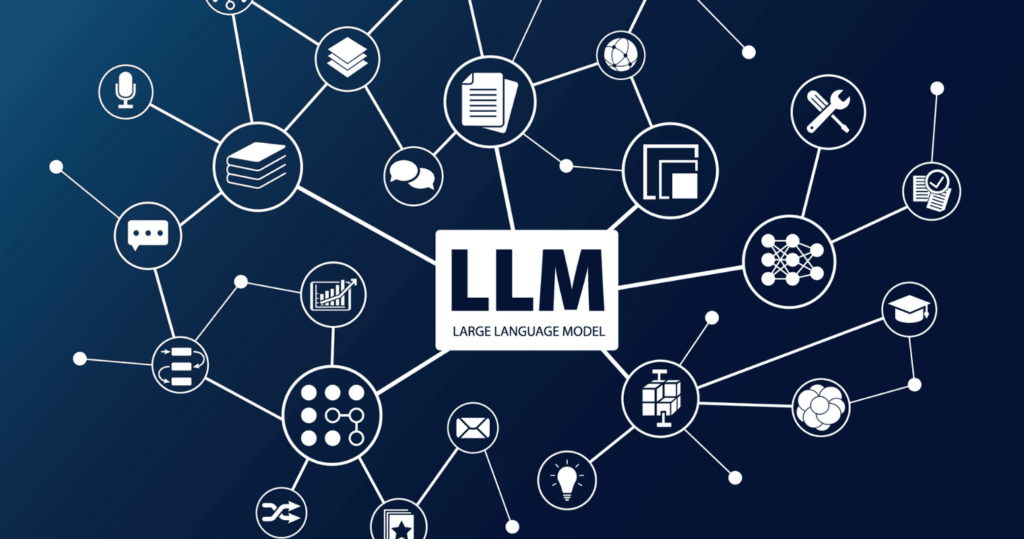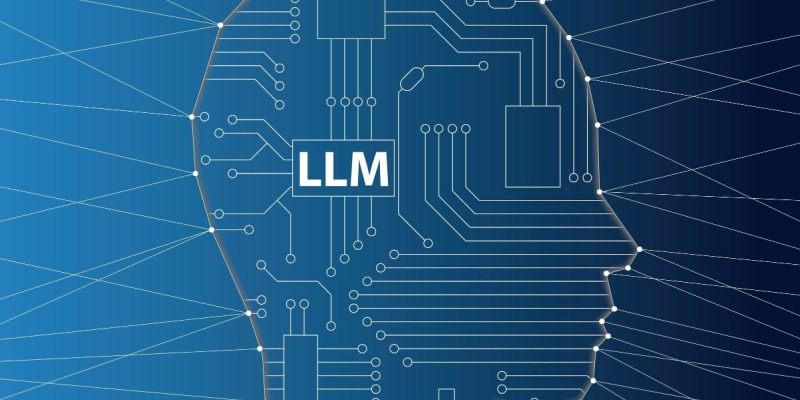Did you know that LLMs (large language models) are paving the way for stronger security in medical devices? These powerful artificial intelligence systems are revolutionising the healthcare industry by analysing vast amounts of data and providing valuable insights. But how exactly do LLMs contribute to enhanced medical device security, and what are the potential benefits for patient outcomes?

LLMs, also known as large language models, are powerful AI systems that have been trained on massive amounts of data to analyze and generate human-like text. These models can understand and generate natural language, allowing them to have conversational and content creation capabilities. LLMs play a crucial role in various fields, including artificial intelligence, generative AI, and language processing.
When it comes to LLMs, there are two main types: private and public. Private LLMs are exclusive versions of the models that are used within an organization’s environment. They provide control and security over the data, ensuring that sensitive information remains protected. With private LLMs, healthcare professionals and other users can customize the models to meet specific business needs and align with industry jargon and processes.
On the other hand, public LLMs are hosted by third-party providers and accessible to anyone. While they offer convenience and accessibility, they raise concerns about data privacy and security. Public LLMs may not provide the same level of control and protection as private LLMs, making them less suitable for organizations that handle sensitive data or have specific privacy requirements.
When choosing between private and public LLMs, it is important to consider factors such as data privacy requirements, the desired level of control, and the sensitivity of the information being processed. Organizations that prioritize data privacy and security may opt for private LLMs, while those seeking convenience and accessibility might find public LLMs more suitable.

Private LLMs offer numerous benefits for healthcare professionals and providers. By hosting models within the organization’s secure infrastructure, private LLMs provide enhanced data privacy and security, ensuring that sensitive information remains protected. This is crucial in an era where healthcare data breaches and cyber threats are on the rise.
One of the advantages of private LLMs is the ability to customize and tailor AI solutions to meet specific business needs. This ensures that the models align with industry jargon and processes, making them more effective and efficient for healthcare professionals.
Private LLMs also empower healthcare providers to harness the power of artificial intelligence and natural language processing. By leveraging these technologies, healthcare professionals can improve patient outcomes and deliver personalized care. Private LLMs can analyze vast amounts of medical data swiftly, extract valuable insights, and aid in clinical decision-making. They have the potential to revolutionize medical research, offer valuable clinical decision support, and generate personalized treatment recommendations.
However, not using private LLMs can expose healthcare providers to significant risks. Data breaches and Non-Compliance with data privacy regulations become real concerns without the enhanced security measures provided by private LLMs. The sensitivity and volume of healthcare data make it an attractive target for cybercriminals, emphasizing the need for robust security measures.
Moreover, not utilizing private LLMs means missing out on opportunities for customization and innovation in healthcare settings. Private LLMs can be fine-tuned to specific medical disciplines, improving accuracy and performance for various healthcare applications. By forgoing private LLMs, healthcare providers may compromise the efficiency and effectiveness of their operations.
Overall, the benefits of using private LLMs in healthcare are substantial. Improved data privacy and security, customization, and the ability to leverage advanced AI technologies all contribute to enhanced patient care. Embracing private LLMs enables healthcare professionals and providers to stay at the forefront of medical advancements and deliver superior healthcare outcomes.

Private LLMs have a wide range of applications in healthcare. These advanced machine learning models can be used in various healthcare settings to improve patient care, enhance medical research, and optimize the use of medical information and data. By leveraging the potential of LLMs, healthcare professionals and providers can unlock new possibilities for improving healthcare outcomes and delivering more efficient and personalized care.
One of the key applications of private LLMs in healthcare is the analysis of medical data to generate valuable insights. These models can efficiently process and analyze large amounts of patient data, allowing healthcare professionals to identify patterns, detect correlations, and make data-driven decisions. By utilizing private LLMs, healthcare providers can improve patient outcomes, streamline diagnosis and treatment, and deliver personalized care that caters to individual needs.
Private LLMs have the potential to transform medical research by analyzing vast amounts of medical information and literature. These models can process complex medical knowledge, research papers, and clinical data to uncover valuable insights. By harnessing the power of LLMs, researchers can accelerate the discovery of new treatments, enhance evidence-based medicine, and contribute to the advancement of medical knowledge across different fields and specialties.
LLMs can be invaluable tools for supporting clinical decision-making. These models can provide evidence-based recommendations, generate personalized treatment plans, and assist healthcare professionals in making informed choices. By leveraging the vast amounts of medical data and knowledge, private LLMs can augment a physician’s expertise and help ensure efficient and effective healthcare delivery.
Private LLMs can also be integrated into medical devices to enhance their security and improve their functionality. By leveraging the power of LLMs, medical devices can analyze and interpret patient information in real-time, enabling more accurate diagnostics and personalized treatment recommendations. This integration has the potential to revolutionize the way medical devices operate, ensuring better patient outcomes and an improved healthcare experience.
In conclusion, private LLMs have a wide range of applications in healthcare, including improving patient care, advancing medical research, supporting clinical decision-making, and enhancing medical devices. By leveraging the power of machine learning and large language models in medicine, healthcare professionals and providers can unlock new possibilities for improving healthcare outcomes, optimizing medical knowledge, and delivering more efficient and personalized care.
Implementing private LLMs in healthcare requires a systematic approach to ensure seamless integration and optimal utilization. By following these steps, healthcare organizations can harness the potential of large language models in healthcare and revolutionize medical practice, education, and research.
The first step is to assess the specific needs and use cases for LLMs in your healthcare organization. Identify areas where LLMs can have the most significant impact, such as medical education, clinical practice, or research. This assessment will serve as the foundation for selecting the appropriate LLM and determining the desired outcomes.
Once the use cases are identified, select the LLM that aligns with your healthcare organization’s requirements and available data. Private LLMs offer customization options, allowing you to fine-tune the model to specific medical domains or train it on relevant medical literature. This customization ensures that the LLM meets the specific needs of your healthcare organization.
Integrating the LLM into your healthcare system is a critical step for successful utilization. Collaborate with your IT department or technology experts to ensure seamless integration and compatibility with existing systems. This may involve adapting electronic health record systems or other healthcare platforms to incorporate the LLM’s capabilities.
Once the LLM is integrated, healthcare professionals can start utilizing it for various applications and use cases. This may include analyzing medical data, generating reports, supporting clinical decision-making, or providing real-time insights. Encourage healthcare professionals to explore the full potential of the LLM and embrace its capabilities.
Regular evaluation and monitoring of the LLM’s performance and impact on healthcare outcomes are crucial for continuous improvement and optimization. Assess the LLM’s effectiveness in meeting the desired goals and make necessary adjustments or refinements to enhance its performance. Continuously gather feedback from healthcare professionals and incorporate their insights in refining the LLM’s functionality.
In conclusion, the successful utilization of private LLMs in healthcare requires a strategic approach. By assessing needs, customizing the LLM, integrating it into existing systems, and optimizing its usage, healthcare organizations can leverage the power of large language models to enhance medical practice, education, and research.

The applications of LLMs in healthcare have the potential to revolutionize the delivery of healthcare services. These large language models can generate personalized medical advice, improve language generation, and enhance communication between healthcare providers and patients. By integrating LLMs into various healthcare applications, such as electronic health record systems and telemedicine platforms, the future of healthcare is set to be transformed.
LLMs have the ability to analyze vast amounts of medical data and literature, democratizing medical knowledge and providing access to healthcare for underserved populations. However, there are significant challenges to address, including biases in training data, the need for large computational resources, and ethical considerations. Continued research and development are necessary to overcome these obstacles and fully realize the potential of LLMs in healthcare.
Despite the limitations, the implementation of LLMs in healthcare has the potential to revolutionize the healthcare industry, improve healthcare outcomes for diverse populations, and provide more efficient and personalized care. By leveraging the power of large language models, healthcare professionals and patients can benefit from enhanced access to medical knowledge and improved healthcare services. The future of healthcare with LLMs is bright, and these advancements have the potential to transform the way we deliver and experience healthcare.
Large language models are a type of artificial intelligence (AI) program that can understand, generate, and interact using human language. Thanks to generative AI and natural language processing techniques, these models can analyze vast amounts of text, making sense of medical data and medical knowledge. In the healthcare sphere, LLMs could revolutionize everything from how healthcare professionals access and learn from medical literature, to improving how we improve patient care through more accurate diagnostics and personalized treatment plans. They really could be game-changers in making medical practice more informed and efficient.
For healthcare providers, LLMs offer several exciting possibilities. They could be used to swiftly sift through and analyze large amounts of medical records and medical literature, identifying relevant medical information with unprecedented speed. This can greatly aid in diagnosis, treatment decisions, and staying up-to-date with the latest medical research. Also, they can facilitate better patient communication by translating complex medical terms into more understandable language, which is crucial in making healthcare settings more patient-friendly.
In medical education, LLMs can dramatically shift the landscape by tailoring and personalizing the learning experience. They can generate realistic medical scenarios for simulation, provide up-to-date medical knowledge, and offer instant feedback. This personal touch could help medical professionals and students by catering to their specific learning needs, ultimately enhancing their understanding and application of complex medical concepts.
By teaming up with Warwick Consulting, you secure a dedicated partner across a spectrum of services. Our unwavering commitment is centered on assisting you in conquering hurdles, ensuring compliance, and strategically guiding your enterprise towards sustained success. Whether you’re in need of non-compliance rectification, software assurance, cybersecurity, SaMD, research and development, or verification and validation, we’re here to fortify your path to excellence in every facet of your journey.
Get in touch today to discuss your specific requirements and unlock the potential of our comprehensive service offerings.